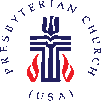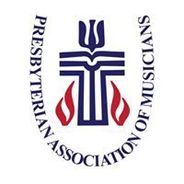In our baptism each of us is called to the one ministry of Jesus Christ. The community of faith covenants with families and with God to nurture those baptized into an understanding of their unique ministry within that one ministry of the body of Christ. To make contemporary Paul’s word in I Corinthians 12, some are called to be "teachers, or business people, or nurses, or political leaders, or homemakers, or social workers or community organizers, or ministers of word and sacrament." Each of these vocations is an important calling for the wholeness of the body and for its faithful ministry in the world. Each calling needs the other callings to be effective and for the body to be whole. As in the congregations described in Acts and the Epistles, the faith community called forth leadership from its midst, choosing those who had the needed gifts for the unique situation.
Today those called forth through the voice of the community of faith are called to specific functions within the community of faith. Some are certified, such as educators; others are ordained to their role: Deacons, Ruling Elders, and Teaching Elders; and others are commissioned, such as Commissioned Ruling Elders. Certification, ordination, and commissioning does not confer on the person a special spiritual status but recognizes and validates their ability to assume a leadership role in the community of faith.
MINISTER OF WORD AND SACRAMENT
The role of the Minister of Word and Sacrament is to "equip the saints for the work of ministry," and "building up the body of Christ" (Ephesians 4:12), and proclaim the word and administer the sacraments. The minister is "set apart" for the tasks of such leadership, but is dependent upon the ministries of each of the members of the community. The gifts of all are needed.
Today those called forth through the voice of the community of faith are called to specific functions within the community of faith. Some are certified, such as educators; others are ordained to their role: Deacons, Ruling Elders, and Teaching Elders; and others are commissioned, such as Commissioned Ruling Elders. Certification, ordination, and commissioning does not confer on the person a special spiritual status but recognizes and validates their ability to assume a leadership role in the community of faith.
MINISTER OF WORD AND SACRAMENT
The role of the Minister of Word and Sacrament is to "equip the saints for the work of ministry," and "building up the body of Christ" (Ephesians 4:12), and proclaim the word and administer the sacraments. The minister is "set apart" for the tasks of such leadership, but is dependent upon the ministries of each of the members of the community. The gifts of all are needed.
|
CERTIFIED CHRISTIAN EDUCATOR
Christian educators are persons called by God to a ministry of education who demonstrate their faith in and love for Jesus Christ, are dedicated to the life of faith and are serious in purpose, honest in character and joyful in service. Certification for Christian educators recognizes the preparation and performance of persons serving as church educators in the Presbyterian Church (U.S.A.), sets standards for Christian educators, and provides support for professional development, Including training in biblical interpretation, Reformed theology, human development, religious education theory and practice, and the polity, programs and mission of the Presbyterian Church (U.S.A.). Based on the requirements of educator certification, an educator seeking certification may enter the process at one of two appropriate levels, depending upon his or her previous background and/or preparation: Certified Christian Educator Christian Education Associate. |
COMMISSIONED PASTOR
When the presbytery, in consultation with the session or other responsible committee, determines that its strategy for mission requires it, the presbytery may authorize a ruling elder to be commissioned to limited pastoral service as assigned by the presbytery. (BOO, G-2.1001) That varies a great deal from presbytery to presbytery and with particular ministries they serve.
Ruling Elders may be commissioned to a particular ministry to: moderate the congregation; administer the Sacraments; or officiate at marriages where permitted by state law. They may also serve: clusters of churches as part of ministry teams; as part-time pastors of small churches; as pastor to new immigrant populations; as temporary leaders for churches seeking an ordained pastor; new worshipping communities; churches in transformation; and in specialized pastoral ministries. Email CFP Executive Presbyter/Stated Clerk Rev. Dr. Dan Williams for more information.
When the presbytery, in consultation with the session or other responsible committee, determines that its strategy for mission requires it, the presbytery may authorize a ruling elder to be commissioned to limited pastoral service as assigned by the presbytery. (BOO, G-2.1001) That varies a great deal from presbytery to presbytery and with particular ministries they serve.
Ruling Elders may be commissioned to a particular ministry to: moderate the congregation; administer the Sacraments; or officiate at marriages where permitted by state law. They may also serve: clusters of churches as part of ministry teams; as part-time pastors of small churches; as pastor to new immigrant populations; as temporary leaders for churches seeking an ordained pastor; new worshipping communities; churches in transformation; and in specialized pastoral ministries. Email CFP Executive Presbyter/Stated Clerk Rev. Dr. Dan Williams for more information.
|
PRESBYTERIAN ASSOCIATION OF MUSICIANS
PAM offers three levels of certification for professional church musicians: Certified Colleague in Church Music (CCCM) No academic degree requirement. A minimum of 4 years experience as a church musician is required. Certified Associate Church Musician (CACM) A Bachelor's degree from an accredited college with a major in music or 10 years experience as a church musician is required. Certified Church Musician (CCM) A Master's or Doctoral degree in music or 20 years experience as a church musician is required. We look forward to providing encouragement, assistance, and guidance along the way. If you have questions or concerns about this process, our Membership Development Committee will gladly address them. It is our goal that this process be robust, fulfilling, and professionally challenging. We believe that those pursuing certification will grow in their personal faith, in their understanding the Presbyterian Church U. S. A., and in their professional ability to lead the people of God in worship. |


